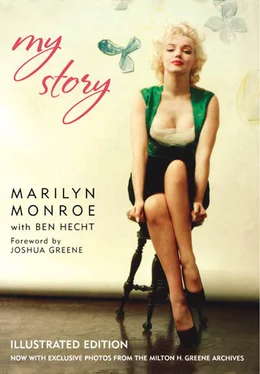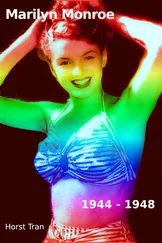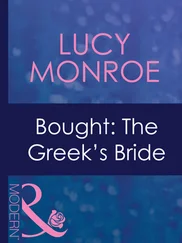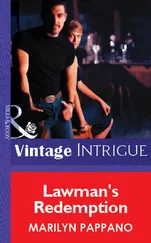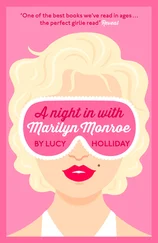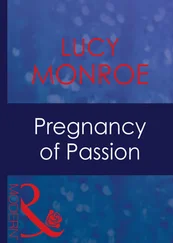“Do you think you can do it?” Johnny Hyde asked me. “You have to break up in it and cry and sob.”
“I thought you thought I was a star,” I said to him, “and I could do anything.”
“You can,” he said, “but I can’t help worrying.”
At first I felt that Johnny had lost faith in me. Then I realized he was just being “too close” to me and that he was worrying with my nerves and fears.
I studied the part for several days and then returned to Mr. Huston’s office to read for him. Several other men were present, including Mr. Hornblow who was the only bald-headed man I had ever seen who looked more elegant than men with hair. In fact he seemed more like some cultured foreign diplomat than a mere movie producer.
They were all friendly and made jokes, but I couldn’t smile. I felt, also, that I would never be able to recite a line. A pulse was pounding in my stomach. I couldn’t have been more frightened if I were about to step in front of a locomotive to get run over.
“Well,” said Mr. Huston, “do you like the part?”
I nodded. My mouth was too dry to try talking.
“Do you think you can do it?”
I nodded again.
I felt sick. I had told myself a million times that I was an actress. I had practiced acting for years. Here, finally, was my first chance at a real acting part with a great director to direct me. And all I could do is stand with quivering knees and a quivering stomach and nod my head like a wooden toy.
Luckily the men fell to making more jokes and seemed to forget about me. They laughed and kidded as if nothing important was involved. But I could feel that behind his burst of laughter Mr. Huston was watching me and waiting for me.
I felt desperate. What was the use of reading in a shaking voice like a terrified amateur? Mr. Huston caught my eye and grinned.
“We’re waiting, Miss Monroe,” he said.
“I don’t think I’m going to be any good,” I answered.
Everybody stopped talking and looked at me.
“Would you mind if I read the part lying on the floor?” I blurted out.
“Why, not at all,” Mr. Huston replied gallantly. “Bill here, will cue you.”
I stretched myself out on the floor and Bill crouched down beside me. I felt much better. I had rehearsed the part lying on a couch, as the directions indicated. There wasn’t any couch in the office. Lying on the floor was almost the same thing, however.
I went through the part, with the crouching Bill reading Louis Calhern’s lines. When I finished I said, “Oh, let me do it again.”
“If you want to,” said Mr. Huston, “but there’s no need.”
I did it again.
When I stood up Mr. Huston said, “You were in after the first reading. Go fix yourself up with the wardrobe department.”
I knew this part wouldn’t be cut out of the picture because it was vital to the plot. I was the reason one of the stars, Louis Calhern, committed suicide. My characterization was Mae West, Theda Bara, and Bo Peep—in tight silk lounging pajamas.
In a movie you act in little bits and pieces. You say two lines, and they “ cut .” They relight, set up the camera in another place—and you act two more lines. You walk five feet, and they say “cut.” The minute you get going good in your characterization, they cut.
But it doesn’t matter. There’s no audience watching you. There’s nobody to act for except yourself. It’s like the games you play when you’re a child and pretend to be somebody else. Usually, it’s even almost the same sort of story you used to make up as a child—about meeting somebody who fell in love with you because, despite everything they’d heard against you, you were a good girl with a heart of gold. I’ve wondered sometimes when I’ve been in a picture if the people making it hadn’t had their children ghostwrite it for them, and I’ve thought, “Wouldn’t it be wonderful if I accidentally opened a door and there they were—the children who really make up the movies—a room full of eight- and nine-year-old kids. Then I could go to the studio head and say, ‘I’d like to play in something a little better than the script you’ve given me. Something a little more human and true to life.’ And when he answered me that the script was made up by the finest brains in the country and I was a fool to criticize it, I’d tell him I knew his secret—the room full of babies who were creating all the movies. And he’d turn pale and give in, and I’d be given a script written by some adult and become a real actress.”

I didn’t have this daydream during Asphalt Jungle because it was an adult script. There was also an audience watching me act—an audience of one, the director. A director like Mr. Huston makes your work exciting. Some directors seem more interested in photographing the scenery than the actors. They keep moving the camera around saying, “Here’s a wonderful shot.” Or, “This is a superb set-up. We’ll be able to get the fireplace and the Oriental mask in the frame.” Or they say, “That’ll cut beautifully. It’ll give us a fast tempo.”
You feel they’re more interested in their directing than they are in your acting. They want the Front Office to praise them when the rushes are shown. Mr. Huston wasn’t like that. He was interested in the acting I did. He not only watched it, he was part of it. And even though my part was a minor one, I felt as if I were the most important performer in the picture when I was before the camera. This was because everything I did was important to the director, just as important as everything the stars of the picture did.
Johnny Hyde was as excited as I was during the shooting. He kept telling me, “This is it, honey. You’re in. Everybody is crazy about your work.”
When the picture was previewed, all the studio heads went to see it. It was a fine picture. I was thrilled by it. The biggest thrill, though, was myself. The audience whistled at me. They made “wolf noises.” They laughed happily when I spoke. They liked me very much.
It’s a nice sensation to please an audience. I sat in the theater with Johnny Hyde. He held my hand. We didn’t say anything on the way home. He sat in my room beaming at me. It was as if he had made good on the screen, not me. It was not only because I was his client and his “discovery.” His heart was happy for me. I could feel his unselfishness and his deep kindness. No man had ever looked on me with such kindness. He not only knew me, he knew Norma Jean, too. He knew all the pain and all the desperate things in me. When he put his arms around me and said he loved me, I knew it was true. Nobody had ever loved me like that. I wished with all my heart that I could love him back.
I told him about my love affair that had just ended and about all the pain I had felt. The affair was over in every way but one. It made it hard to love again. Johnny was even kind about this. He didn’t scream and carry on. He understood. He didn’t blame or criticize. Life was full of mix-ups and wrong starts, he said. He would wait for my heart to get strong again and wait for me to love him, if I could.
Kindness is the strangest thing to find in a lover—or in anybody. Johnny’s kindness made him seem the most wonderful human being I’d ever met.
“The first thing to do,” he said to me the next day, “is get you a contract with Metro.”
“Do you think you can?” I asked.
“They’ve got a new star on their hands,” said Johnny, “and they know it. Everybody is raving about your work. Most of all, you saw and heard that audience. They bought you as I’ve never seen any small part player bought in a picture before.”
Читать дальше
